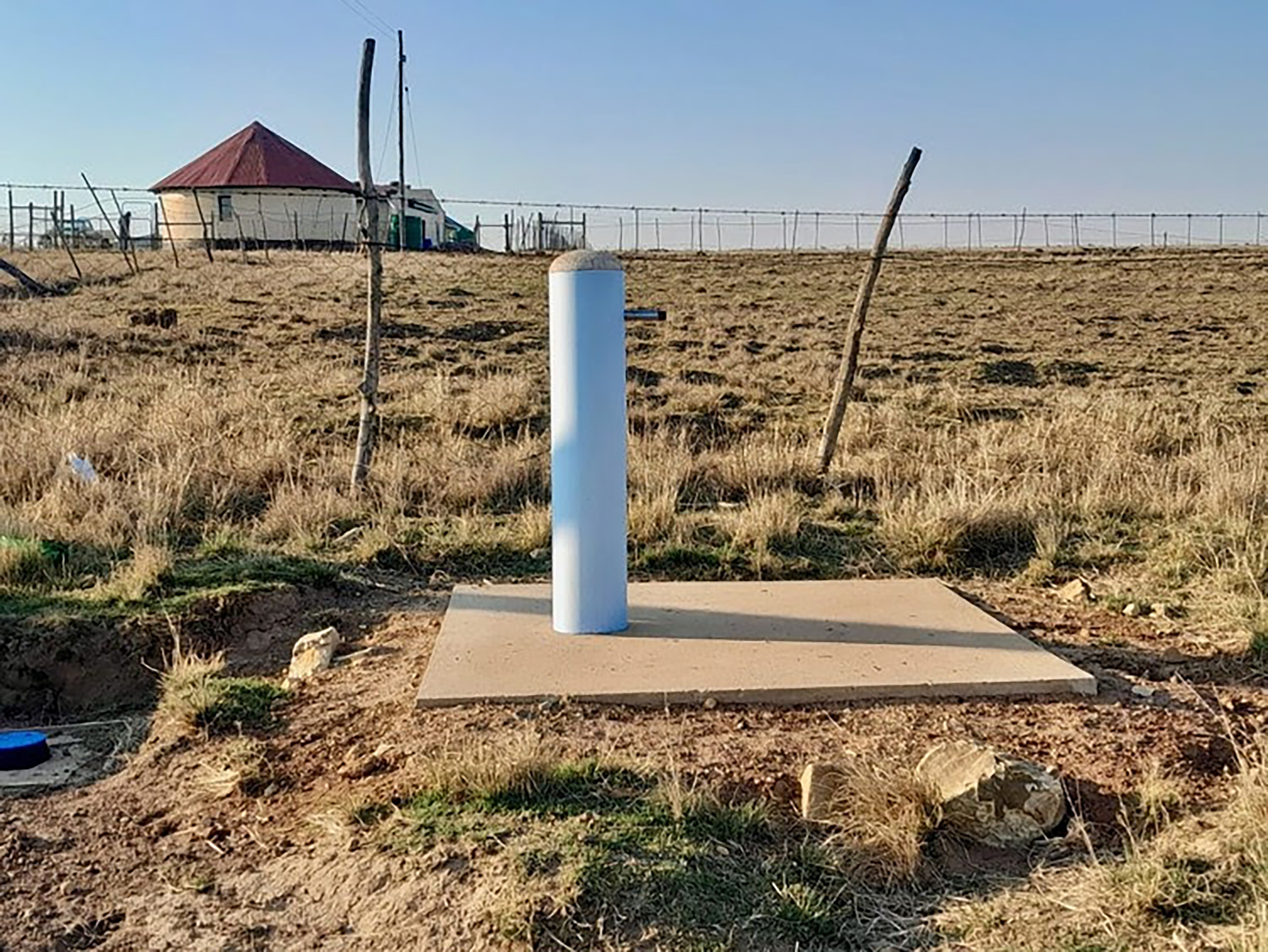The Chris Hani District Municipality has spent more than R66-million on four water projects. And yet the taps are dry in many villages in Ngcobo, Eastern Cape. Some have never had water. Others ran dry months or even years ago. Meanwhile, people share water with livestock at rivers.
Municipal spokesperson Bulelwa Ganyaza said seven water schemes had been built in the Ngcobo ward.
The R28.3-million phase 1 of the Lokshin project started in December 2015, and was supposed to be completed a year later, but took until June 2020 to finish. It was meant to provide water to four areas in Lower Qebe and Lokshin village. A reservoir was built and taps installed.
Yet villages like Mthwazi, with 30 households, have only one tap and the supply is intermittent. Villagers say the taps were dry for five months.
The R30.6-million phase 2, meant to be completed in May 2021, was finished in September 2023. Yet Lokshin villagers say in some sections taps have been dry for three years, while villagers in Hala say their taps have been dry since the day they were installed.
Ganyaza said the R1.5-million Sundwana water reticulation project started in October 2020 and was completed in April 2022. However contractors and consultants involved told GroundUp the project was only completed this year and still had issues that needed to be rectified.
 A stream where Quthubeni residents get water to drink and do their washing. (Photo: Manqulo Nyakombi)
A stream where Quthubeni residents get water to drink and do their washing. (Photo: Manqulo Nyakombi)
Even as residents complain about the lack of water, ward 13 Councillor Sivuyile Mfeki (ANC) and the ward committee chairperson signed forms in July stating that taps had been “handed over” with “water coming out of the taps to our reasonable satisfaction”. Mfeki told GroundUp that the taps were tested and working fine when he signed.
Sundwana village sub-headman Gcinisizwe Mbeshu said the forms were signed to release funds to the contractors to finish the project. But the project remained unfinished.
Mbeshu said: “In some areas like mine the Upper Sitholeni taps were not installed, but we are told that the project is finished.” The standpipes were installed but without taps, he said.
He said the ward committee chairperson who signed the form was “never part of the project steering committee”.
“Chris Hani (Municipality) is telling us that testing was done and taps have water but not a single community member was called to witness that,” he said.
Steering committee chairperson Tsolwana Maqonga said he had refused to sign the forms as some villages had no taps.
Displeasure
Last month, a delegation of National Council of Provinces delegates led by Chief Mwelo Nonkonyana visited the province and “expressed their displeasure with the rising number of delayed infrastructure development projects”.
Nonkanyana told GroundUp that they had discovered that it was common for consent forms to be signed before a project iwas finished.
Ganyaza said that the Lokshin one and two and Sundwana projects were to be supplied by the Sitholeni water treatment works, but it was not operational as it had no electricity. She said the Sitholeni community was demanding electrification of their households first.
Meanwhile Lokshin one and two were connected to a spring, but it took a long time to fill the reservoir. A borehole had been sunk for the Sundwana villages and a contractor was currently constructing a pump house.
Another completed water project with dry taps is the R5.7-million Qutubeni scheme in the village where Walter Sisulu was born. The project started in September 2011 and was completed in June 2012. It is meant to supply spring water to villages including Mayirheni, Marheleni, Mqokoqho and Luhlalweni.
In Mayirheni village, taps were vandalised and stolen. The water supply is highly unreliable as it is the furthest village from the springs and the last to receive water. Out of 30 taps installed in 2012, only two have water and then only after it rains.
Ntombizine Latshane, the Quthubeni community chairperson, said the municipality had been promising for nearly a year that it would send a contractor to fix the water supply. She said they had a rotational system with each village getting water for three days after every six days. The water was from a spring that supplied a reservoir that supplied three taps installed in Latshane’s village in 1994.
Ganyaza said the area was badly affected by illegal connections. DM
Originally published by GroundUp.




 A stream where Quthubeni residents get water to drink and do their washing. (Photo: Manqulo Nyakombi)
A stream where Quthubeni residents get water to drink and do their washing. (Photo: Manqulo Nyakombi)